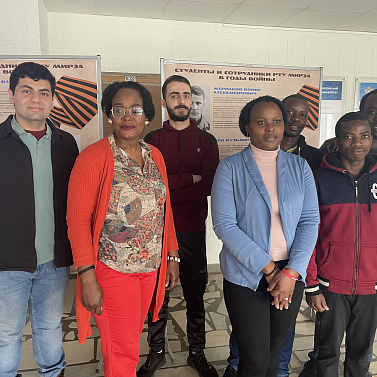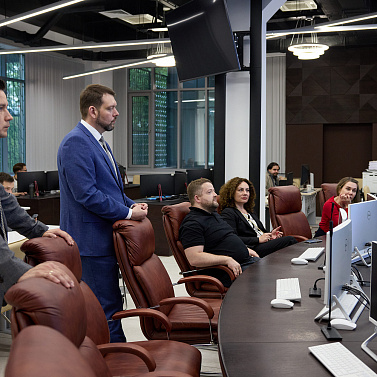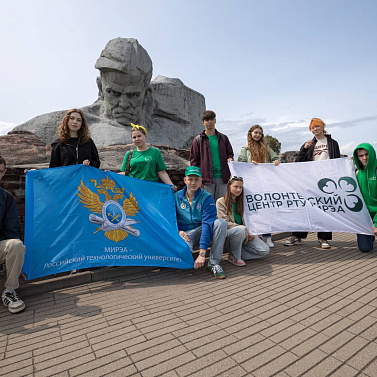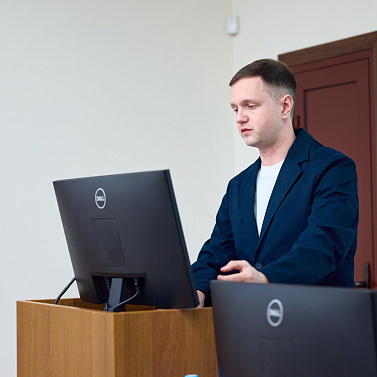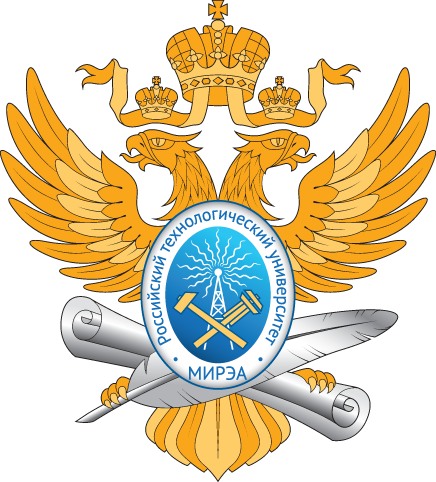RTU MIREA students took part in the ChinaDiscovery 2020 International Summer Online School
12.08.2020
RTU MIREA students – Daria Rizhskaya (the Institute for Integrated Security and Special Instrumentation) and Daria Avramenko (the Institute of Physics and Technology) – participated in the ChinaDiscovery 2020 International Summer Online School which was arranged by Harbin Institute of Technology (HIT) from July 6 to 31.
⠀
Within a month, students completed a number of courses delivered in English, specifically, in culture, literature, economics and international relations, as well as the Chinese language courses for beginners. The training was free; upon completion of the program, personal certificates were issued with the information about the courses taken and the number of credits received.
⠀
Students shared their impressions of the experience they gained during this summer program. Daria Rizhskaya, 3rd year, bachelor's degree program, the Institute for Integrated Security and Special Instrumentation: “Classes were held on weekdays and started at 9 a.m. Some of the courses were organized online, via Skype, but most of our sessions were held in VooVMeeting, a Chinese conferencing software.
I would roughly divide the training program into four parts: general information about China, including information about culture, history, national cuisine and the language; information about the world economy, China’s role in it and the economic changes during the pandemic; information about technological progress and the role of technology in modern society; information about biology and space.
The opportunity to study at the HIT summer school was an absolute surprise for me and a real dream gift at the end of the academic year. Thanks to this program, I was able to expand my knowledge in almost all areas: from biology to space research. Direct communication with representatives of China made it possible for us to take a fresh look at their culture and history.
It is very pleasant that, despite the pandemic, the program was implemented, albeit, in an online format. Anyway, it was interesting. I can well imagine how great it would be to go to China, talk in person to other people there and see the country with my own proper eyes.”
⠀⠀
Daria Avramenko, 3rd year undergraduate, the Institute of Physics and Technology:
“I learned about the HIT summer school from the head of the RTU MIREA International Relations Department. Every year, students of our University have a unique opportunity to take part in the HIT summer program for free. A degree from a foreign university is prestigious; moreover, at school I participated in similar language programs many times.
The main subject which we had weekly was the Chinese language. For me personally, this was the most difficult part of the program; although I never had any problems with learning foreign languages. Perhaps, the point was that most often the traditional study of a language begins with the alphabet and letter combinations, while in this case it was words and phrases at a conversational level. Later on, the learning process had become more and more difficult, and, unfortunately, I realized that this language would not give way easily.
As for other subjects, it was very informative! Despite some difficulties for lecturers and trainers to provide exhaustive explanations of certain concepts in English, the meaning was clear. “Cultural Heritage of China”, “Architecture of China”, “Traditional Holidays and Festivals in China”, “Business in China” – this is a short list of topics that I remember most. China is a country with a fascinating and diverse culture, and it was so interesting to hear about it from a person who has lived there all his life.
Also, in the last two days, we had interactive classes when we were taught how to make a bunny using the origami technique, how to cook traditional Chinese holiday dishes: gyojo dumplings, a salad of crushed cucumbers and eggs soaked in black tea.
The schedule for our classes was convenient and transparent: some of the training sessions were held via Skype, others – via VooV (this is the Chinese analogue of Zoom). Our group tutor sent us the access code in the evening of the day before classes. The time for classes was chosen quite conveniently: from nine in the morning to half past eleven in the afternoon.
⠀
I am grateful for the opportunity to participate in such a program, which helped me to gain a lot of new and interesting information.”
⠀
Within a month, students completed a number of courses delivered in English, specifically, in culture, literature, economics and international relations, as well as the Chinese language courses for beginners. The training was free; upon completion of the program, personal certificates were issued with the information about the courses taken and the number of credits received.
⠀
Students shared their impressions of the experience they gained during this summer program. Daria Rizhskaya, 3rd year, bachelor's degree program, the Institute for Integrated Security and Special Instrumentation: “Classes were held on weekdays and started at 9 a.m. Some of the courses were organized online, via Skype, but most of our sessions were held in VooVMeeting, a Chinese conferencing software.
I would roughly divide the training program into four parts: general information about China, including information about culture, history, national cuisine and the language; information about the world economy, China’s role in it and the economic changes during the pandemic; information about technological progress and the role of technology in modern society; information about biology and space.
The opportunity to study at the HIT summer school was an absolute surprise for me and a real dream gift at the end of the academic year. Thanks to this program, I was able to expand my knowledge in almost all areas: from biology to space research. Direct communication with representatives of China made it possible for us to take a fresh look at their culture and history.
It is very pleasant that, despite the pandemic, the program was implemented, albeit, in an online format. Anyway, it was interesting. I can well imagine how great it would be to go to China, talk in person to other people there and see the country with my own proper eyes.”
⠀⠀
Daria Avramenko, 3rd year undergraduate, the Institute of Physics and Technology:
“I learned about the HIT summer school from the head of the RTU MIREA International Relations Department. Every year, students of our University have a unique opportunity to take part in the HIT summer program for free. A degree from a foreign university is prestigious; moreover, at school I participated in similar language programs many times.
The main subject which we had weekly was the Chinese language. For me personally, this was the most difficult part of the program; although I never had any problems with learning foreign languages. Perhaps, the point was that most often the traditional study of a language begins with the alphabet and letter combinations, while in this case it was words and phrases at a conversational level. Later on, the learning process had become more and more difficult, and, unfortunately, I realized that this language would not give way easily.
As for other subjects, it was very informative! Despite some difficulties for lecturers and trainers to provide exhaustive explanations of certain concepts in English, the meaning was clear. “Cultural Heritage of China”, “Architecture of China”, “Traditional Holidays and Festivals in China”, “Business in China” – this is a short list of topics that I remember most. China is a country with a fascinating and diverse culture, and it was so interesting to hear about it from a person who has lived there all his life.
Also, in the last two days, we had interactive classes when we were taught how to make a bunny using the origami technique, how to cook traditional Chinese holiday dishes: gyojo dumplings, a salad of crushed cucumbers and eggs soaked in black tea.
The schedule for our classes was convenient and transparent: some of the training sessions were held via Skype, others – via VooV (this is the Chinese analogue of Zoom). Our group tutor sent us the access code in the evening of the day before classes. The time for classes was chosen quite conveniently: from nine in the morning to half past eleven in the afternoon.
⠀
I am grateful for the opportunity to participate in such a program, which helped me to gain a lot of new and interesting information.”
More news
